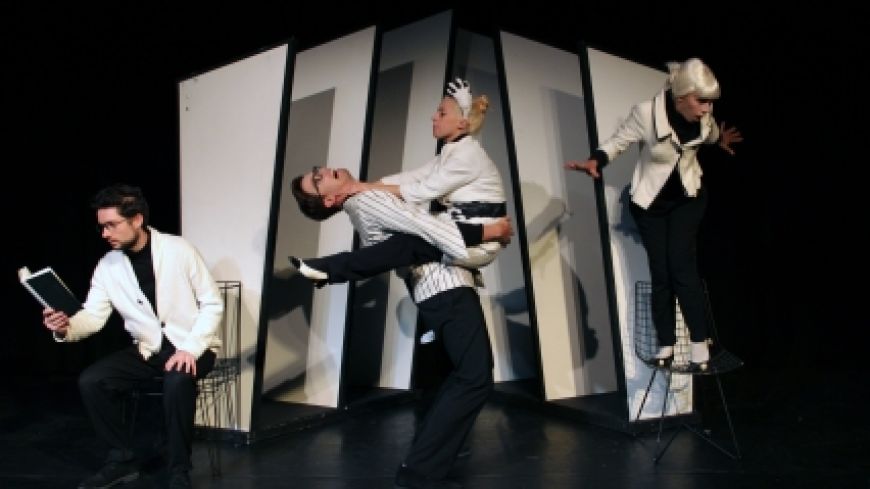
Welcome to the mechanised age; the spirit of a new era is upon us. At least that’s the buzz that’s going around the architectural gathering we are invited to witness. It’s part convention and part swinging ‘60s party – short skirts and a free bar.
Emerging from the gloom of the post-war years there is a need and a will to sweep away slum housing and the prevalent notion is build new “streets in the skies”. It’s clearly a groovy time and the only way is up.
Pulled into this scene is Roger, a rather reticent bungalow designer who quickly becomes a convert when he meets Wendy, a woman who expresses almost sexual pleasure when describing concrete as if it has jewel-like qualities. She is to architecture what Nigella Lawson is to cooking.
They are both in the thrall of architect and urbanist Le Corbusier whose declaration that “a house is a machine for living in” they treat with messianic fervour. He imbues them with the idea that the community is like a sponge and will react to its environment; the right architecture will be the solution to social unrest.
Inspired, the couple create Graceful Towers and, convinced that they have built an efficient instrument for living, move in along with the new residents, who stare with wide-eyed wonder. It may be that their vision has been slightly cramped by budgetary considerations, but what can possibly go wrong?
This energetic drama fuses movement, music and spirited acting to construct a highly intelligent piece of theatre. It’s also visually appealing with almost monochrome set and costume designs that invokes the futuristic ambiance of Metropolis. Against this backdrop are strong stylised performances that are often delivered with almost over-the-top glee.
While the production is glittering and sharp (an epithet that was also given of Le Corbusier) it lacks a bit of emotional punch and the passing of time has reduced its satirical impact. Where it scores highly is in its depth. To its huge credit it doesn’t take the easy path of demonising the protagonists but looks at the way in which, as the arch modernist Wells Coats said, we deal with “a future which must be planned, rather than a past which must be patched up”.
A vision of brave new world? Perhaps not, but certainly brave new theatre.
Show Times: Runs to 27 August 2012 (not 14, 21), 3.30pm.
Ticket Prices: £10 (£8)

